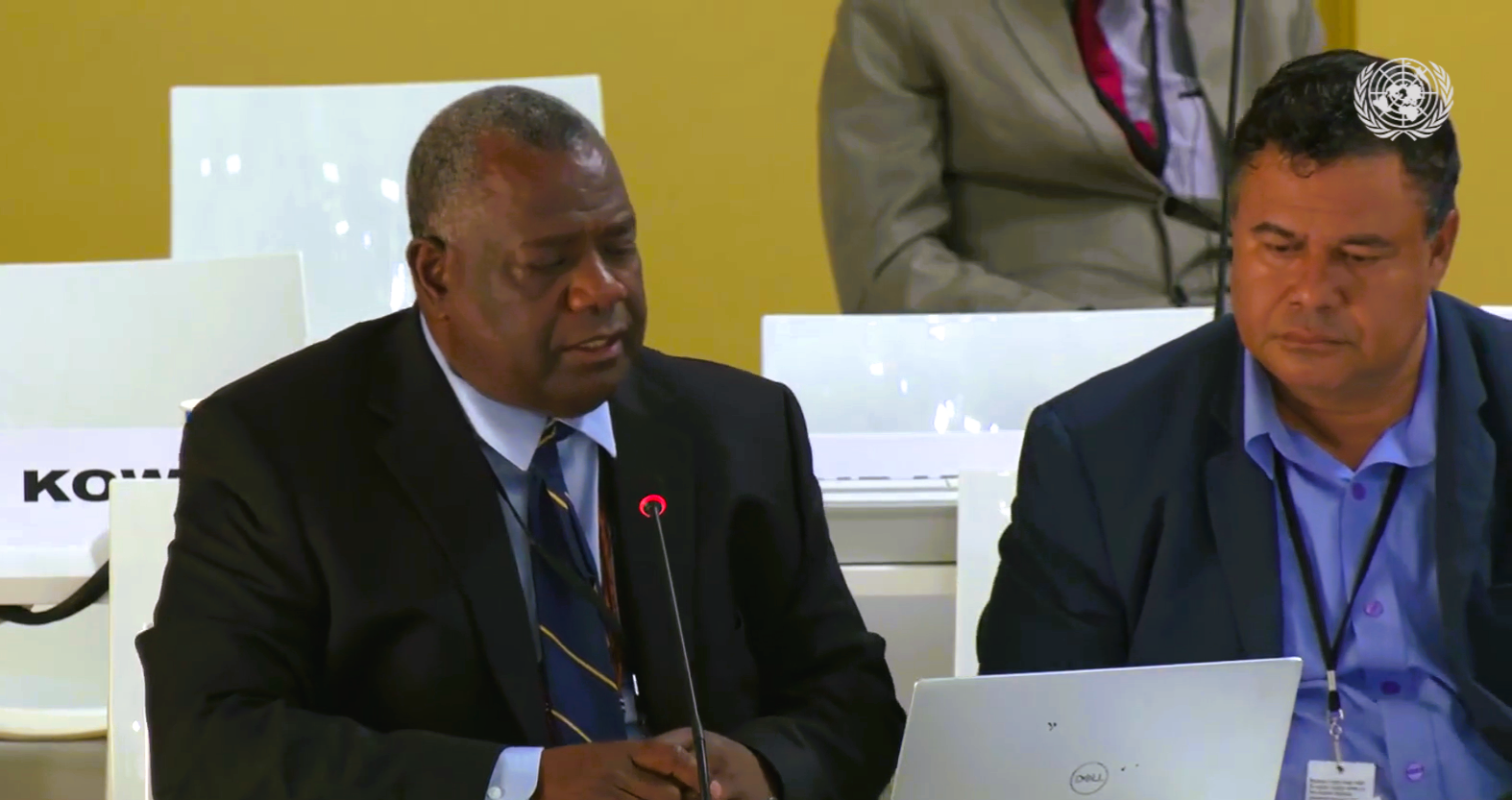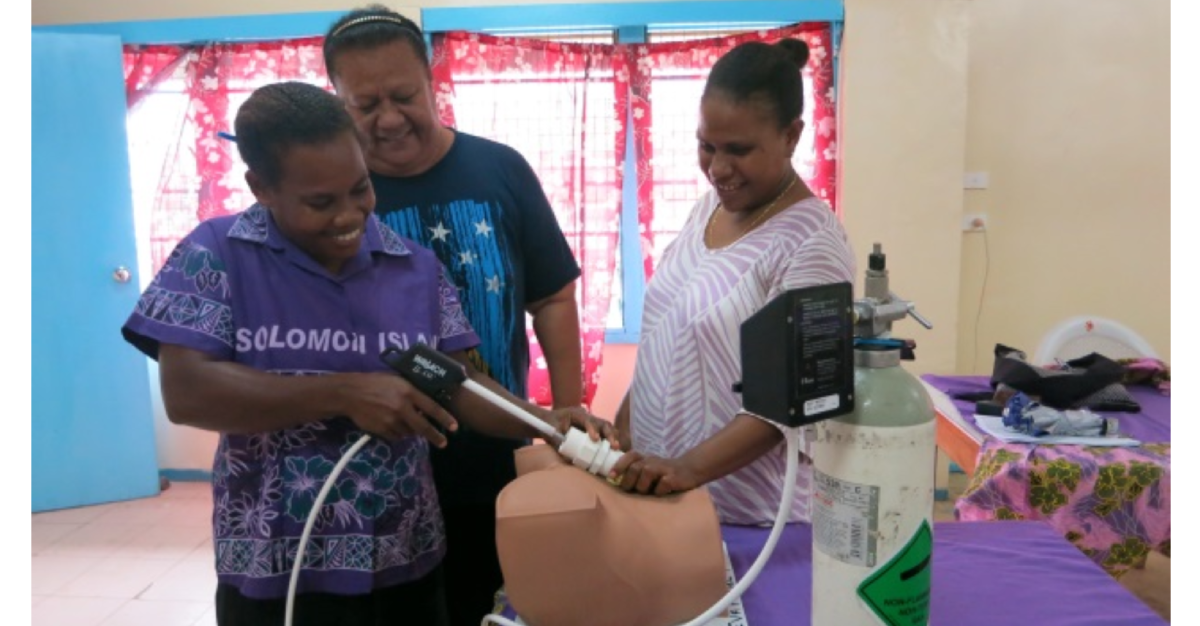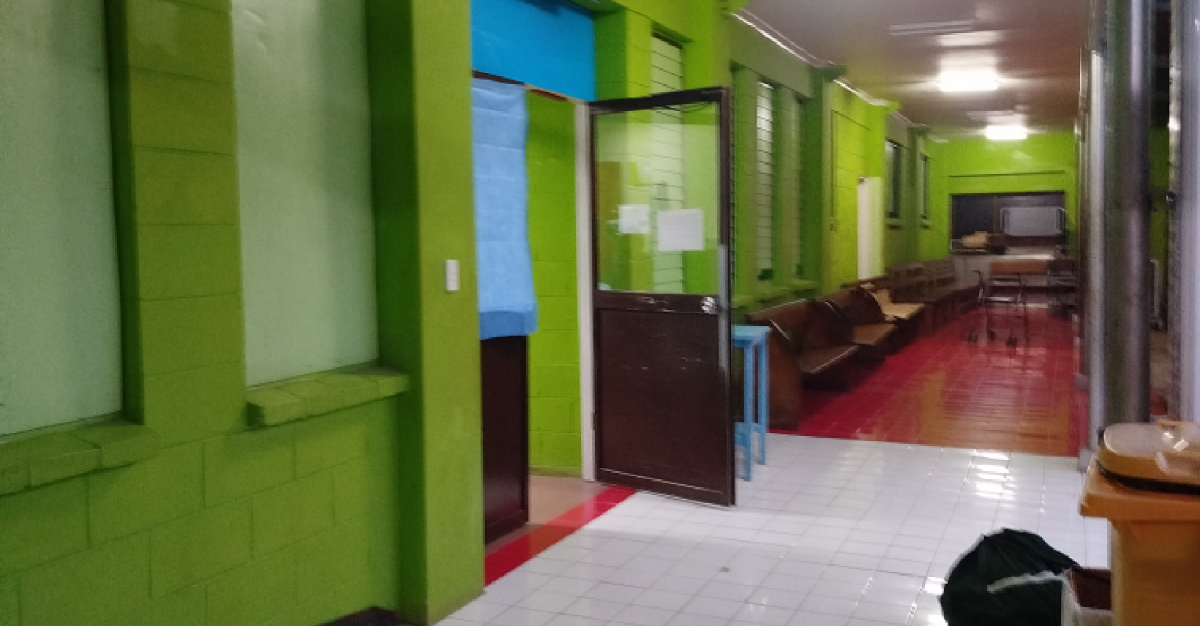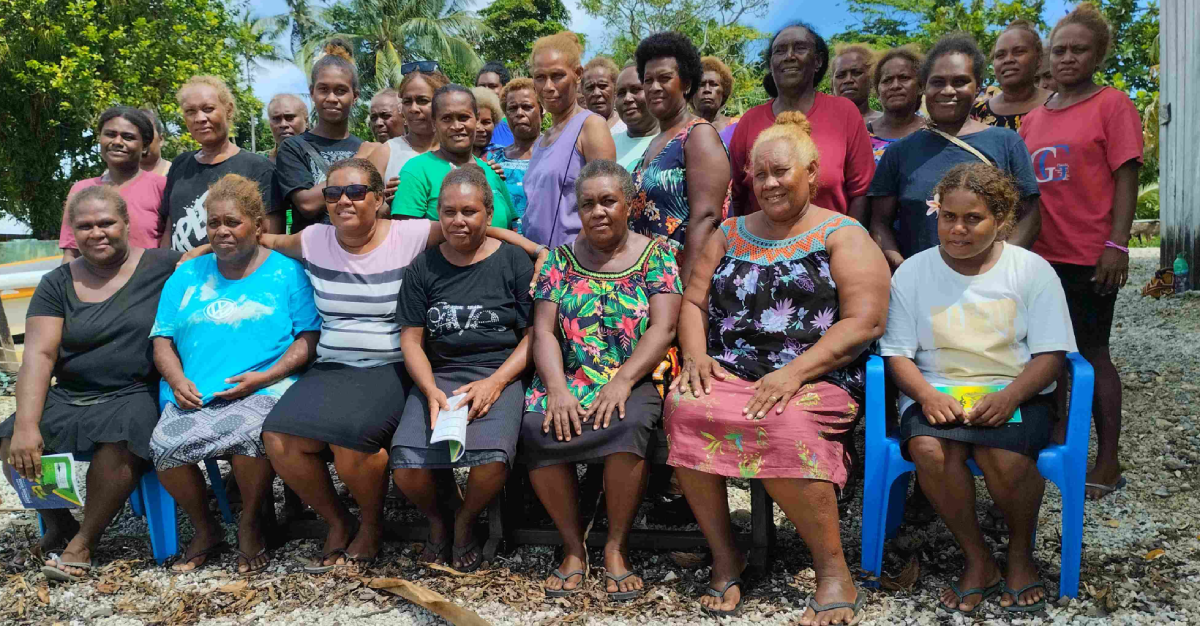Nice, France – – Minister for Fisheries and Marine Resources, Hon. Bradley Tovosia, has called for decisive, enforceable global action to tackle marine pollution—highlighting the urgent threats from both ship waste and the growing menace of ghost gear.
Speaking on Wednesday 11th June during Ocean Action Panel 4: Preventing and significantly reducing marine pollution of all kinds, in particular from land-based activities, Minister Tovosia stressed the need for innovative technologies and data-driven policies to address the persistent problem of lost fishing gear that endangers marine ecosystems and biodiversity.
“We must develop innovative technologies and data-driven policies to reduce the threat of ghost gear,” the Minister said, highlighting how this silent hazard traps marine life and threatens the ocean’s health.
Minister Tovosia also emphasized that land-based pollution and shipping-related contaminants are the dominant contributors to plastic and chemical pollution in the ocean. While national policies and laws provide a critical foundation, he urged that these must be backed by strict enforcement, effective waste management, and strengthened regional cooperation.
“Our policies and laws lay the foundation, but they must be reinforced with strict enforcement, effective waste management and regional cooperation,” he stated.
Further supporting the International Maritime Organization’s efforts, the Minister reaffirmed Solomon Islands’ commitment to initiatives such as the Energy Efficiency Design (EED) and the Ship Energy Efficiency Plan (SEEP) under MARPOL, aimed at reducing greenhouse gas emissions from shipping.
Highlighting the urgent need for a binding global treaty, Minister Tovosia called for a comprehensive, legally enforceable framework to tackle plastic pollution across its full lifecycle—from production and design to reuse and recycling—with a focus on building the capacity of Pacific Small Island Developing States (PSIDS).
“We are committed to beating plastic pollution from land and sea, and we will push for a treaty that ensures accountability and mutual support,” he said.
The Minister is urging the international community to adopt strong, binding commitments to protect oceans, support vulnerable coastal communities, and meet the targets of Sustainable Development Goal 14 (Life Below Water).
“Only through strong, binding commitments can we safeguard our oceans, protect our communities, and fulfill our shared responsibility,” Hon. Tovosia affirmed.
What is Ghost Gear?
Ghost gear refers to lost, abandoned, or discarded fishing equipment such as nets, lines, traps, and other gear that continue to trap and kill marine life long after being lost.
This “ghost fishing” causes significant harm to marine ecosystems, damaging coral reefs, endangering fish stocks, and threatening biodiversity. Tackling ghost gear requires innovative technology, better data collection, and sustainable policies to prevent and remove this hidden ocean threat.





